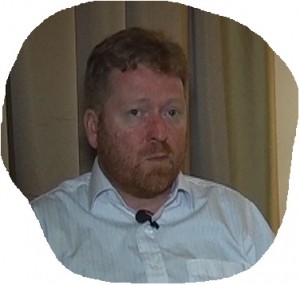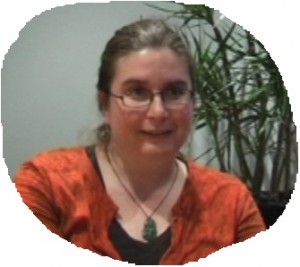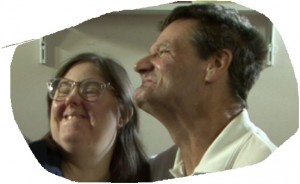Educational Packs
All of these tabs contain educational material and are password protected, web page addresses will be emailed to students. This area has been created for students studying in any Community Service field. Each tab contains video footage, lesson plans for the facilitator and learning plans for the students. Subject areas include:
An interview with the author and creator of the Hanging out program (HOP). This is a program that is targeted toward people who support other people who live with a profound intellectual and multiple disabilities or (PMLD) . Described in this interview as people who are at risk of isolation, this program gets workers , friends and family to stop and engage with people with PMLD. Designed and presented by Sheridan Forster who has a passion for PMLD and runs workshops around the globe. This program asks the students to engage with another person and practice the skills of “being with someone”. In todays busy world this is becoming a lost art but here Sheridan brings this to life and put solid reason to our interactions with PMLD. A thought provoking conversation is usually created after watching this interview, were workers question their practice and also the safe touch methods. There are links to the free booklet to explore the issues raised in this interview.
Full training session: 4 Hours
Video Length: 17:40
Language: English
Producer Mark Krause. Laughing Productions Copyright 2010
 Associate Professor Keith McVilly talks about working with modern behavioural management practices within Disability Service Provision. Recorded in Brisbane in 2010 at the National ASSID conference. Keith discussed his involvement in a joint project with the Disability Services Commissioner in Western Australia in his capacity as a researcher of a program around family centred behavioural support services. Keith explain the links between the tertiary providers, described as the positive behaviour team and the families who are supporting a child within the home who is displaying behaviours of concern. He explains the shift in disability services to a Scientist/Practitioner Model of evidence based and evidence gathering practice and highlights how best practice can be a real goal within disability workers with great education.
Associate Professor Keith McVilly talks about working with modern behavioural management practices within Disability Service Provision. Recorded in Brisbane in 2010 at the National ASSID conference. Keith discussed his involvement in a joint project with the Disability Services Commissioner in Western Australia in his capacity as a researcher of a program around family centred behavioural support services. Keith explain the links between the tertiary providers, described as the positive behaviour team and the families who are supporting a child within the home who is displaying behaviours of concern. He explains the shift in disability services to a Scientist/Practitioner Model of evidence based and evidence gathering practice and highlights how best practice can be a real goal within disability workers with great education.
Full training session: 4 Hours
Video Length:
Language: English
Producer Mark Krause. Laughing Productions Copyright 2010
The Disability Services Act 2011 states “The inherent dignity of persons with disability…” The dignity challenge….. what is it? what is dignity? Have a think about this, do you know when somewone is giving you respect and dignity? What does it look like?
Not easy to articulate is it?
We know when we have not receive dignity but it is hard to say when we do receive dignity, so if it is hard to get around dignity and it’s meaning how are we, as support staff supposed to give dignity and respect to those that the United Nations say we should?
In these four short films and one interview we explore what dignity is in our daily practice when supporting people with disabilities.
Full training session: 4 Hours
Video Length: 5 Short Films
Language: English
Producer Mark Krause. Laughing Productions Copyright 2012
[nggallery id=10]
Vintage films
All films in this section are password protected to ensure the privacy of those contained in the films. Each film has an education purpose as Willow Court was the birth place of the rights movement for People who live with a disability or mental heath issue in Tasmania. The families, Advocates and Staff that worked hard along side People living with disabilities and mental health issue have given us these films so the history can be told and told to those that can effect the future of support services in Tasmania in a positive way. This fits in to our motto; Past to Present. Memory to Action.
Six months to go and counting.
SIX MONTHS TO GO & COUNTING. This is a totally unique opportunity and a rare glimpses into the closed world of Willow Court! This film looks at Willow Court through the eyes of its people, the last 51 residents and the lives they lead within the boundaries of the institution in the last six months before closure in 2000. The film was created by Fiona Richardson and Jamie Ferguson along with the Cosmos Inc photography group and with the permission from the Dept. Health and Human Services. Copies were given to each of the last residents as a memory to a past life, many copies have now disappeared. This is a private film which was never meant to be shared publicly. We are fortunately to be allowed to show this for educational reasons, to allow new support workers to see what institutional care was about, it looks at both positive and negative aspects. The Filmmaker reported a lot of opposition from some Staff during the filming of this story, which is worth telling as a separate story in the future. Strictly no copying or sharing of this footage.
Shadows of the past
“SHADOWS OF THE PAST” was a film taken in 1963-4, it shows an operating Asylum in New Norfolk called Lachlan Park Hospital after the opening scenes of the Derwent Valley it shows the massive rebuilding projects that were currently going on throughout the hospital, both east and west sides of the hospital. You can see wards K and I Wards that have been lost forever and the rear of the Barracks, now demolished. It shows the rooms, bedding and security. The final part shows the old clock tower being blown up. Patients have been removed because of privacy reasons and to comply with Archive permission. Photography by John Craw this film was left in the Hospital safe for many years, this was given to the State Archives Office before closure of the Hospital. Strictly no copying or sharing of this footage.
1991 ABC 7.30 Report
In 1991 ABC News recorded a story about a number of ex-residents of Willow Court. It was screened on the 7.30 Report as a 9 minute story of “institutionalisation to community” and followed the stories of Neil, Don, Jean and Ian. Jean and Ian were the first couples to be married in Willow Court despite negative pressure to their marriage. They also interview the Hon. Judy Jackson MHA who was key in the decision to de-institutionalise 300 residents with disabilities despite huge pressure from within her own political party. Where did they go? Staff and residents talk about their new life and how they felt about institutionalised care. Permission has been gained from ABC to screen for educational purposes only. Strictly no copying or sharing of this footage.
Lachlan Park Hospital
This footage shows the Barracks from the rear enclosed yard, H Ward and I Ward, the old clock tower and accommodation rooms on the west side of the hospital including the old metal fold up bed. Black & White silent footage. Strictly no copying or sharing of this footage
Ward 10 ABC Archive Footage
This footage starts on the west side of the hospital and shows the view from the clock tower and J Ward when it was still only a single story building. It then moves to the east side of Lachlan Park Hospital including Ward 10 High Security with it’s Ha Ha Wall and large double fences and the interior of a cell. It also appears to be showing the means of a possible escape with welded window panels and cut fencing. This is Black and White footage and is silent. circa 1960. Strictly no copying or sharing of this footage
Willow Court Training Centre
Willow Court was a Training Centre which employed a number of Project Officers in the 1980′s that were trained in skill development of people with disabilities who were institutionalised. Many Staff frowned on this as it was believed to be a waste of time and effort. This film is a restored piece of footage from a collection owned by members of the Parents and Friends of Willow Court Patients. It is rare and because it identifies people will not see public screening for many years to come. Out of respect to the Parents and Friends and the People, both Patient and Worker please don’t share or copy this film, it is for educational purposes only. Strictly no copying or sharing of this footage
Silent Minority
Silent Minority, aired on British television June 1981. The documentary spotlights allegedly appalling conditions at Borocourt Hospital, Reading, Berks and St Lawrences Hospital Caterham, Surrey. St Lawrences Hospital in 1974, the hospital came to public attention with the publication of the book Tongue Tied by Joseph (‘Joey’) John Deacon who had been a patient at the hospital since the age of eight in 1928. This was followed by the TV documentary Silent Minority in which the hospital featured in an unfavourable light. The documentary brought out strong feelings at the time given the content which in one scene shows a child tied to a pole in a ward.

